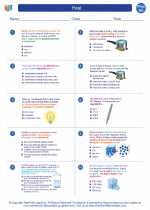Epigenetic Factors
Epigenetic factors refer to the changes in gene expression that are not caused by alterations in the DNA sequence. These changes can be influenced by a variety of environmental factors and can have a significant impact on an organism's development and phenotype.
Types of Epigenetic Factors
There are several mechanisms through which epigenetic changes can occur, including:
- DNA Methylation: This involves the addition of a methyl group to the DNA molecule, which can alter the activity of the gene without changing the underlying DNA sequence.
- Histone Modification: Histones are proteins that help package DNA in the cell. Modification of histones can influence how tightly the DNA is packaged, thereby affecting gene expression.
- Non-coding RNA: Non-coding RNA molecules can interact with specific genes and regulate their expression.
Impact of Epigenetic Factors
Epigenetic factors play a crucial role in various biological processes, including development, differentiation, and disease. They can also influence traits such as behavior, intelligence, and susceptibility to certain diseases.
Study Guide
Here are some key points to focus on when studying epigenetic factors:
- Understand the different mechanisms of epigenetic regulation, including DNA methylation, histone modification, and non-coding RNA.
- Explore the impact of epigenetic factors on gene expression and phenotype.
- Examine the role of epigenetics in development and disease, and how it can be influenced by environmental factors.
- Consider examples of how epigenetic changes can be inherited and their implications for future generations.
- Discuss current research and advancements in the field of epigenetics, including potential applications for medical treatments and personalized medicine.
By understanding the complex interplay of epigenetic factors, you can gain insight into the intricate mechanisms that shape the traits and characteristics of living organisms.



